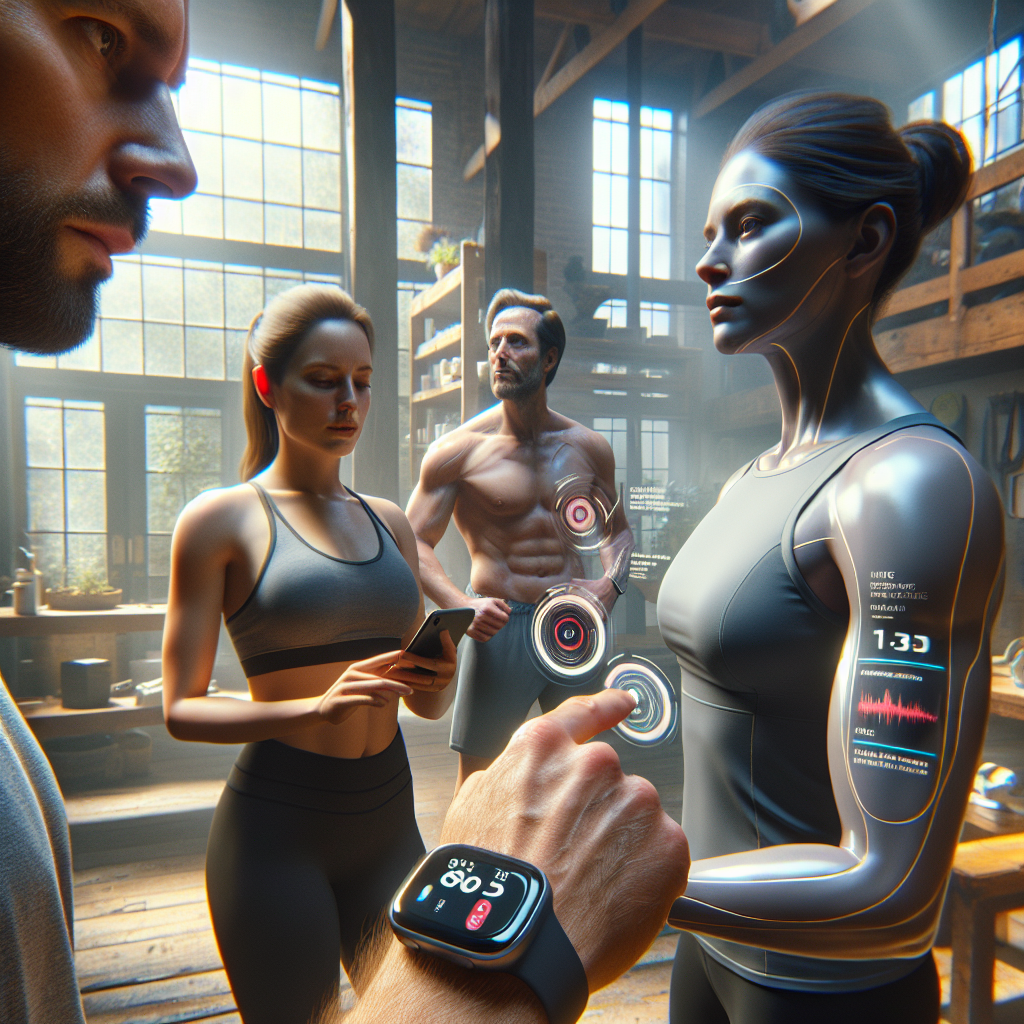Stress-free health tracking is about integrating effective strategies that simplify monitoring your wellness without adding additional anxiety or workload. By leveraging technology, establishing sustainable routines, and focusing on holistic approaches, you can maintain a balanced lifestyle while keeping tabs on your health metrics. This comprehensive guide explores various methodologies and tools that facilitate a seamless and stress-free health tracking experience.
Understanding the Importance of Health Tracking
Health tracking is an essential part of maintaining overall well-being. By keeping an eye on vital metrics, individuals can make informed decisions about their lifestyle, diet, and exercise routines. Data-driven insights empower users to take proactive measures, potentially preventing chronic diseases and ensuring a healthier life.
Why Health Tracking Matters
- Early Detection: Regular monitoring can help identify potential health issues before they become severe.
- Customized Healthcare: Personalized data allows for tailored healthcare plans that suit individual needs.
- Goal Achievement: Tracking progress towards health goals keeps you motivated and accountable.
- Behavioral Insights: Understand the impact of lifestyle choices on your health.
The Psychological Benefits of Stress-Free Tracking
Stress-free health tracking not only helps in maintaining physical well-being but also supports mental health. Anxiety and stress often arise from overwhelming data or the pressure to meet certain health standards. Employing stress-free strategies mitigates these concerns, allowing for a more positive and encouraging tracking experience.
Choosing the Right Tools for Health Tracking
With the proliferation of health technology, selecting the right tools is crucial. The right device or application can simplify the process, making it more intuitive and less burdensome.
Wearable Devices
Wearables have become a popular choice for health tracking, offering convenience and real-time data. Popular devices like Fitbit, Apple Watch, and Garmin provide insights into various health metrics such as heart rate, steps, sleep patterns, and more.
Features to Consider
- Battery Life: A longer battery life means less frequent charging, reducing hassle.
- Data Accuracy: Choose devices with proven accuracy in data collection.
- Compatibility: Ensure the device is compatible with your smartphone and other gadgets.
- User Interface: A simple and intuitive interface enhances the user experience.
Mobile Applications
Health apps are versatile tools that can track a range of metrics from diet to exercise to mental health. Applications like MyFitnessPal, Headspace, and Strava cater to different aspects of health and wellness.
Key Features
- Customizable Goals: The ability to set and modify goals according to personal needs.
- Integration Capabilities: Apps that sync with other devices and applications provide a comprehensive health overview.
- User Feedback: Look for apps with positive user reviews and high ratings.
Establishing a Routine
Creating a routine is fundamental in achieving stress-free health tracking. Consistency helps in forming habits, ensuring that health tracking becomes an integral, yet unobtrusive part of daily life.
Setting Realistic Goals
Setting achievable goals is vital for maintaining motivation and avoiding burnout. Start with small, manageable targets and gradually increase the difficulty as you progress.
SMART Goals Framework
- Specific: Clearly define what you want to achieve.
- Measurable: Ensure that the progress can be quantified.
- Achievable: Set goals that are realistic and attainable.
- Relevant: Align goals with your overall health objectives.
- Time-bound: Set a deadline to achieve your goals.
Incorporating Health Tracking into Daily Life
Integrating health tracking into your daily routine can be seamless with the right approach.
- Morning Routine: Start your day by reviewing your health metrics from the previous day.
- Meal Times: Use apps to log meals and nutritional intake.
- Exercise Sessions: Track workouts using wearables or fitness apps.
- Evening Review: Reflect on your day’s progress and plan for tomorrow.
Leveraging Technology for Stress-Free Tracking
Advancements in technology have made health tracking more accessible and less intrusive. Leveraging these technologies can facilitate a more streamlined and stress-free tracking process.
AI and Health Tracking
Artificial Intelligence (AI) plays a significant role in enhancing health tracking by offering personalized insights, predictive analytics, and automated data collection.
Benefits of AI in Health Tracking
- Data Analysis: AI can process vast amounts of data to provide actionable insights.
- Predictive Analytics: Predict potential health issues based on patterns in your data.
- Personalization: Tailor recommendations based on individual health profiles.
Cloud-Based Solutions
Cloud technology allows for seamless data storage and access, enabling users to track their health metrics anytime, anywhere.
Advantages of Cloud-Based Tracking
- Data Accessibility: Access your health data across multiple devices.
- Security: Ensure data is encrypted and secure.
- Collaboration: Share data with healthcare providers easily.
Integrating Mindfulness and Mental Health Tracking
Addressing mental health is a crucial component of holistic health tracking. Incorporating mindfulness practices can significantly reduce stress and improve overall well-being.
Mindfulness Techniques
Mindfulness involves being present and fully engaged with the current moment without judgment. Techniques such as meditation, deep breathing, and yoga can be integrated into health tracking routines.
Benefits of Mindfulness
- Stress Reduction: Helps in managing stress and anxiety.
- Improved Focus: Enhances concentration and mental clarity.
- Emotional Well-being: Promotes a positive mindset and emotional balance.
Mental Health Apps
There are various apps designed to assist with mental health tracking, offering guided meditations, mood tracking, and cognitive behavioral therapy (CBT) exercises.
Popular Mental Health Apps
- Headspace: Offers guided meditation and mindfulness exercises.
- Calm: Provides relaxation techniques, sleep stories, and music.
- BetterHelp: Connects users with professional therapists for online counseling.
Data Privacy and Security in Health Tracking
Ensuring data privacy and security is paramount in health tracking. Users must be aware of how their data is being collected, stored, and shared.
Understanding Privacy Policies
Before using any health tracking device or app, review the privacy policy to understand how your data will be used.
Key Considerations
- Data Ownership: Know who owns the data you generate.
- Sharing Permissions: Understand what data can be shared and with whom.
- Encryption: Ensure that data is encrypted both in transit and at rest.
Regulatory Compliance
Health tracking technologies must comply with regulatory standards such as HIPAA in the United States or GDPR in Europe to protect user data.
Regulatory Standards
- HIPAA: Protects sensitive patient information in the US.
- GDPR: Governs data protection and privacy in Europe.
- CCPA: California Consumer Privacy Act, enhancing privacy rights in California.
Evaluating the Effectiveness of Your Health Tracking Strategy
Regularly assessing the effectiveness of your health tracking strategy ensures that it remains aligned with your goals and needs.
Analyzing Health Metrics
Evaluate your health metrics to determine if you are on track to meet your health goals. Adjust your strategy as needed based on these insights.
Common Health Metrics
- Steps and Activity Levels: Monitor daily movement and exercise.
- Caloric Intake: Track nutrition and dietary habits.
- Sleep Quality: Assess patterns and quality of sleep.
- Mental Health: Monitor mood and stress levels.
Feedback from Healthcare Professionals
Consult with healthcare professionals to get an expert evaluation of your health tracking data and receive personalized recommendations.
Benefits of Professional Feedback
- Expert Analysis: Gain insights from trained professionals.
- Personalized Advice: Receive tailored health recommendations.
- Early Intervention: Address potential health issues promptly.
Conclusion
Effective stress-free health tracking is a dynamic process that involves the right combination of tools, technology, and routines. By focusing on user-friendly devices, integrating health tracking into daily life, leveraging technology, and ensuring data privacy, you can achieve a balanced and healthy lifestyle. Remember to regularly evaluate your strategies and remain adaptable to ensure that your health tracking remains effective and stress-free.
Take Control of Your Fitness Journey Today!
Experience the Future of Fitness with PurelyFit
Are you ready to revolutionize your approach to fitness? Ditch the expensive trainers and confusing diet plans. With PurelyFit, you have everything you need to achieve your fitness goals faster and smarter than ever before. Our AI-powered workouts and personalized nutrition plans are tailored specifically to your needs, ensuring you get the most effective and efficient results.
Join thousands who are already transforming their lives with our cutting-edge technology. Explore over 600,000 recipes designed for every lifestyle and dietary requirement, and track your progress in real-time with adaptive plans that grow with you.
Start Your Transformation Now!
Embrace the future of fitness with PurelyFit and unlock the potential within you. Your personalized, AI-driven fitness journey is just a step away.











